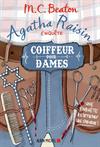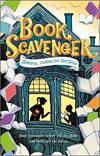
Galileo's Daughter
3 journalers for this copy...
I picked this up from the Mississauga Symphony Sale for cheap!
From amazon:
Despite its title, this impressive book proves to be less the story of Galileo's elder daughter, the oldest of his three illegitimate children, and more the story of Galileo himself and his trial before the Inquisition for arguing that Earth moves around the Sun. That familiar tale is given a new slant by Sobel's translationAfor the first time into EnglishAof the 124 surviving letters to Galileo by his daughter, Suor Maria Celeste, a Clarisse nun who died at age 33; his letters to her are lost, presumably destroyed by Maria Celeste's convent after her death. Her letters may not in themselves justify a book; they are devout, full of pious love for the father she addresses as "Sire," only rarely offering information or insight. But Sobel uses them as the accompaniment to, rather than the core of, her story, sounding the element of faith and piety so often missing in other retellings of Galileo's story. For Sobel shows that, in renouncing his discoveries, Galileo acted not just to save his skin but also out of a genuine need to align himself with his church. With impressive skill and economy, she portrays the social and psychological forces at work in Galileo's trial, particularly the political pressures of the Thirty Years' War, and the passage of the plague through Italy, which cut off travel between Florence, where Galileo lived, and Rome, the seat of the Pope and the Inquisition, delaying Galileo's appearance there and giving his enemies time to conspire. In a particularly memorable way, Sobel vivifies the hard life of the "Poor Clares," who lived in such abject poverty and seclusion that many were driven mad by their confinement.
From amazon:
Despite its title, this impressive book proves to be less the story of Galileo's elder daughter, the oldest of his three illegitimate children, and more the story of Galileo himself and his trial before the Inquisition for arguing that Earth moves around the Sun. That familiar tale is given a new slant by Sobel's translationAfor the first time into EnglishAof the 124 surviving letters to Galileo by his daughter, Suor Maria Celeste, a Clarisse nun who died at age 33; his letters to her are lost, presumably destroyed by Maria Celeste's convent after her death. Her letters may not in themselves justify a book; they are devout, full of pious love for the father she addresses as "Sire," only rarely offering information or insight. But Sobel uses them as the accompaniment to, rather than the core of, her story, sounding the element of faith and piety so often missing in other retellings of Galileo's story. For Sobel shows that, in renouncing his discoveries, Galileo acted not just to save his skin but also out of a genuine need to align himself with his church. With impressive skill and economy, she portrays the social and psychological forces at work in Galileo's trial, particularly the political pressures of the Thirty Years' War, and the passage of the plague through Italy, which cut off travel between Florence, where Galileo lived, and Rome, the seat of the Pope and the Inquisition, delaying Galileo's appearance there and giving his enemies time to conspire. In a particularly memorable way, Sobel vivifies the hard life of the "Poor Clares," who lived in such abject poverty and seclusion that many were driven mad by their confinement.
Despite the name of this book, it is really a biography about Galileo through the adult years of his life. It chronicles the positions that Galileo held, where he held them, and what scientific discoveries he made that have shaped modern science. Behind all the science, however, were Galileo's family and friends. Galileo had two daughters, which were sent at an early age to the convent, and a son. He made friends in the religious community, as well as with the Medici family, becoming an official mathematician of the Florence Medici factor.
Galileo and his eldest daughter were very close and wrote letters to each other on a very regular basis (she was not allowed to leave the convent and in his poor health, he couldn't always visit). Unfortunately, only her letters to him were saved. It is believed that his letters to her were burned or buried. The author uses her letters to her father to guide the biography and indicate how she felt when Galileo was going through some of his more troublesome times: namely, the inquisition against him that essentially put him under house arrest after supporting the idea that the Earth revolves around the Sun.
While parts of this book moved very slowly, overall it was interesting. There's even a surprise at the ending which wraps the book up very nicely. Having just been in Florence, it was neat to get a perspective of what the city was like 400+ years ago.
Galileo and his eldest daughter were very close and wrote letters to each other on a very regular basis (she was not allowed to leave the convent and in his poor health, he couldn't always visit). Unfortunately, only her letters to him were saved. It is believed that his letters to her were burned or buried. The author uses her letters to her father to guide the biography and indicate how she felt when Galileo was going through some of his more troublesome times: namely, the inquisition against him that essentially put him under house arrest after supporting the idea that the Earth revolves around the Sun.
While parts of this book moved very slowly, overall it was interesting. There's even a surprise at the ending which wraps the book up very nicely. Having just been in Florence, it was neat to get a perspective of what the city was like 400+ years ago.
This book is with me now
This is a biography of Galileo. Through letters sent to him by his eldest daughter, his life is chronicled. Galileo's 2 daughters were sent to a convent because of the circumstances of their birth. Unable to leave the convent the eldest developed a very close relationship with her father. She wrote and saw him very often.
The story tells of Galileo's poor health and of his experiments and mathematical discoveries. He was a intellect while being a very religious man. Galileo tried in various ways to present his and Kepler's findings about the universe and the earth revolving about the sun while still keeping his faith's laws. The Vatican finally had enough of this and tried him. The court machinations and the politics were interesting to read about. It is amazing the role the church used to have in scientific discoveries.
Interweaving the letters with the biography made the story seem more real and gave it a life itself.
The story tells of Galileo's poor health and of his experiments and mathematical discoveries. He was a intellect while being a very religious man. Galileo tried in various ways to present his and Kepler's findings about the universe and the earth revolving about the sun while still keeping his faith's laws. The Vatican finally had enough of this and tried him. The court machinations and the politics were interesting to read about. It is amazing the role the church used to have in scientific discoveries.
Interweaving the letters with the biography made the story seem more real and gave it a life itself.
Mailed to Pepper today so that it can go in Xeyra's mbag.
Arrived today. It's going into the m-bag box!







